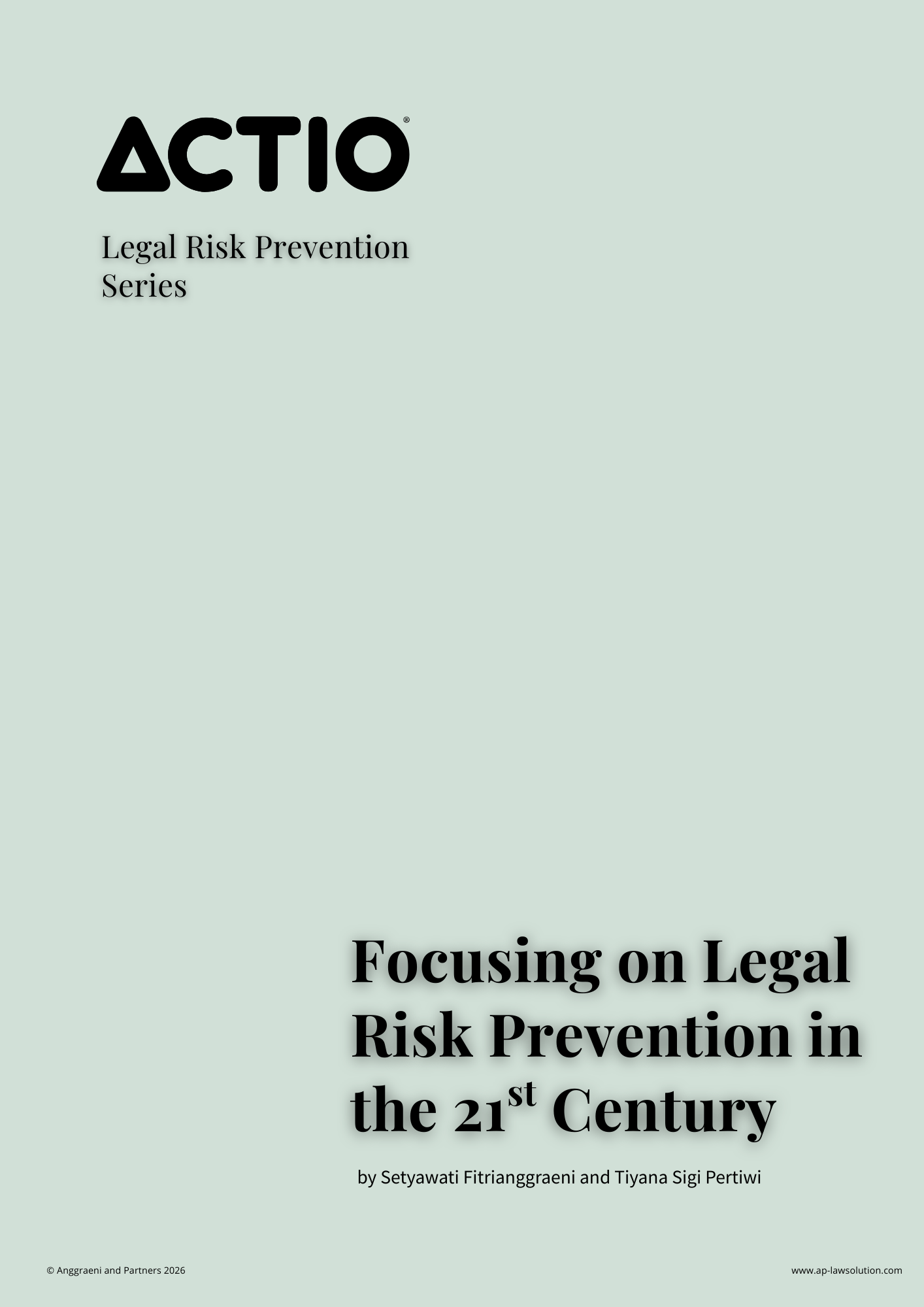- Home
- Capabilities
- ACTIO® Hub
- About Us
- Connect with Us
- AP Library
by Setyawati Fitrianggraeni and Sri Purnama
The recent decision from the Hong Kong Special Administrative Region’s High CourtW v Contractor,[1] which confirms that interim measures ordered by arbitral tribunals are not subject to appeal, significantly reinforces arbitration’s efficiency and effectiveness in dispute resolution. This article explores the implications of the court’s decision in the context of the Hong Kong Arbitration Ordinance and international arbitration practice.
Legal Framework
Under the Hong Kong Arbitration Ordinance (Cap. 609), particularly sections 35 and 36, and aligned with Articles 17 and 17A of the UNCITRAL Model Law on International Commercial Arbitration, arbitral tribunals are empowered to issue interim measures to maintain thestatus quo pending the resolution of the dispute.[2] These sections are designed to prevent any action that might aggravate or extend the dispute before the final resolution.[3]
Court’s Decision
In the case mentioned above,[4] an employer sought to appeal an arbitrator’s decision to grant interim measures that restrained them from demanding payment under an on-demand bond during the ongoing arbitration proceedings. The High Court’s decision hinged on interpreting what constitutes an ‘award’ under the Arbitration Ordinance. The Court concluded that decisions on interim measures do not qualify as ‘awards’ and are thus not appealable. This interpretation aligns with the aim of arbitration to provide a quicker and less formal means of resolving disputes without the protracted processes associated with traditional litigation.[5]
Judicial Reasoning
The Court referred to several criteria to determine whether a decision is an award, notably whether the decision conclusively affects the rights and liabilities of the parties. Since interim measures are provisional and can be altered or revoked by the arbitrator during the arbitration proceedings, they do not meet the criteria for finality required for an appealable award.[6]
Implications for Arbitration Practice
This ruling underscores the principle of minimal judicial intervention in arbitration, a cornerstone of Hong Kong’s arbitration regime. By limiting the scope for appealing interim measures, the court favors maintaining arbitration’s efficacy as a swift and effective dispute resolution mechanism. This decision is particularly pertinent given Hong Kong’s status as a global hub for arbitration, especially in commercial disputes.
The case reflects a broader trend in jurisdictions such as the UK, Australia, and Singapore, where courts have similarly upheld the finality of arbitral decisions on interim measures, reinforcing the arbitral process’s autonomy and respecting the parties’ choice for arbitration as their dispute resolution method.[7]
Conclusion
The Hong Kong High Court’s affirmation that interim measures are not appealable is a commendable step towards enhancing the predictability and reliability of arbitration. This decision supports the expeditious nature of arbitration and ensures that it remains an attractive alternative to litigation for international and domestic parties alike. By firmly upholding the principles in the Arbitration Ordinance and the UNCITRAL Model Law, Hong Kong continues strengthening its position as a leading center for international arbitration.
Footnotes :
[1] W v Contractor [2024] HKCFI 1452, Hong Kong Court of First Instance, Construction and Arbitration Proceedings 103/2023,<legalref.judiciary.hk/lrs/common/ju/ju_frame.jsp?DIS=160470&currpage=T> accessed on 15 July 2024.
[2] Arbitration Ordinance (Cap. 609), Sections 35 and 36.
[3] Ibid.
[4] n (1).
[5] HKIAC, ‘What is Arbitration?’ < https://www.hkiac.org/arbitration/what-is-arbitration> accessed on 15 July 2024.
[6] High Court Decision, [2024] HKCFI 1452, para. 26.
[7] G v N [2024] HKCFI 721; ZCCM Investments Holdings plc v. Kansanshi Holdings plc [2020] 1 All ER (Comm) 132.
DISCLAIMER :
This disclaimer applies to the publication of articles by Anggraeni and Partners. By accessing or reading any articles published by Anggraeni and Partners, you acknowledge and agree to the terms of this disclaimer:
No Legal Advice: The articles published by Anggraeni and Partners are for informational purposes only and do not constitute legal advice. The information provided in the articles is not intended to create an attorney-client relationship between Anggraeni and Partners and the reader. The articles should not be relied upon as a substitute for seeking professional legal advice. For specific legal advice tailored to your individual circumstances, please consult a qualified attorney.
Accuracy and Completeness: Anggraeni and Partners strives to ensure the accuracy and completeness of the information presented in the articles. However, we do not warrant or guarantee the accuracy, currency, or completeness of the information. Laws and legal interpretations may vary, and the information in the articles may not be applicable to your jurisdiction or specific situation. Therefore, Anggraeni and Partners disclaims any liability for any errors or omissions in the articles.
No Endorsement: Any references or mentions of third-party organizations, products, services, or websites in the articles are for informational purposes only and do not constitute an endorsement or recommendation by Anggraeni and Partners. We do not assume responsibility for the accuracy, quality, or reliability of any third-party information or services mentioned in the articles.
No Liability: Anggraeni and Partners, its partners, attorneys, employees, or affiliates shall not be liable for any direct, indirect, incidental, consequential, or special damages arising out of or in connection with the use of the articles or reliance on any information contained therein. This includes, but is not limited to, loss of data, loss of profits, or damages resulting from the use or inability to use the articles.
No Attorney-Client Relationship: Reading or accessing the articles does not establish an attorney-client relationship between Anggraeni and Partners and the reader. The information provided in the articles is general in nature and may not be applicable to your specific legal situation. Any communication with Anggraeni and Partners through the articles or any contact form on the website does not create an attorney-client relationship or establish confidentiality.
By accessing or reading the articles, you acknowledge that you have read, understood, and agreed to this disclaimer. If you do not agree with any part of this disclaimer, please refrain from accessing or reading the articles published by Anggraeni and Partners.
For further information, please contact:

P: 6221. 7278 7678, 72795001
H: +62 811 8800 427
S.F. Anggraeni
Managing Partner
Sri Purnama
Junior Legal Research Analyst
Research Group Transnational Litigation and Tort Law


